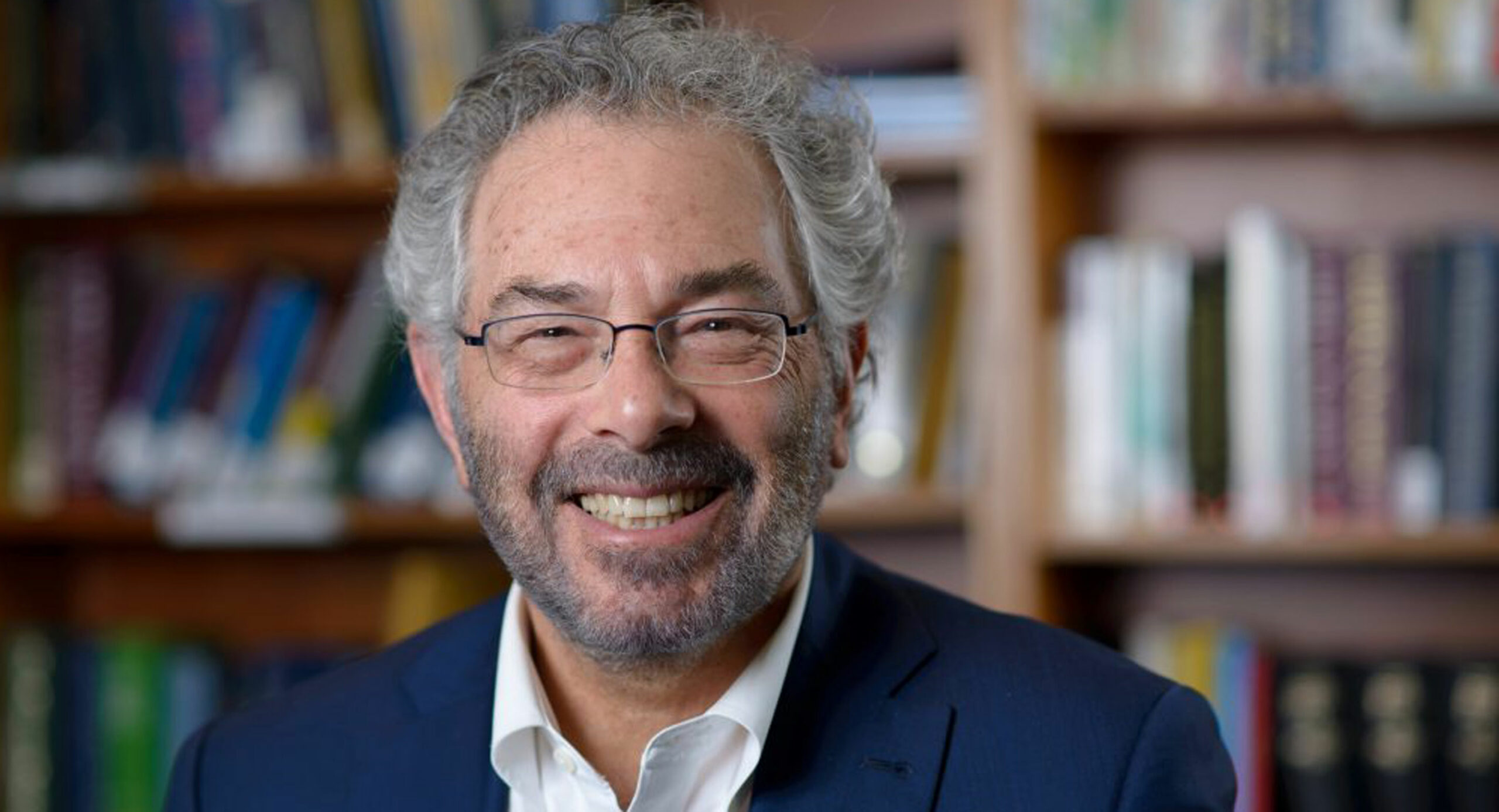Jewish learning Be Happy – It’s Adar! Really?

I am blessed with a sunny constitution. I am often happy and I am easily amused. Smiling comes naturally to me. But, I sort of hate to be told how I should feel. I get very ornery and resistant when people—or tradition—try to legislate my emotions. Joy is great: obligatory joy is less welcome. Which is why I’ve always had a hard time with the admonition: “Be happy, it’s Adar.” On this lovely beginning of the month, Rosh Hodesh Adar, I’d like to unpack that a bit.
The discussion goes back to Maseket Ta’anit 29a, and takes place in the middle of very sad discussion about the month of Av. The Gemorah teaches, when Av enters, we decrease rejoicing. This is accompanied by a tragic and vivid story about the destruction of the Beit HaMigdash and of the young kohanim going up to the roof of the burning Temple and throwing the keys up to God in heaven before falling into the flames to perish. Maybe the discussion in the academy was just getting too heavy so Rav Yehuda quotes Rav, comforting us by adding בשמחה מרבין אדר משנכנס, when Adar comes, rejoicing increases, which is the Talmudic source of the admonition to be happy on Adar. This is not so much that one is commanded to rejoice, like the commandment connected to Sukkot, v’samachta b’hagecha, rather that Adar is a happy, lucky time: Rav Pappa even says, if you have to go to court, go during Adar and you have a better chance of winning your case. Please don’t share this with Rudy Giuliani.
But it’s clear that Adar—when we celebrate Purim and the delivery from a psychopathic ruler who tried to kill us—brings in happiness. Now, the trajectory certainly works for me this year: It’s been a long pandemic Av coupled with a deeply unsettling time of violent disturbance in our country. Now Adar brings the hope of vaccines, adults in the government; and for the first time in my long life, I have a major crush on the Vice President, feelings I never felt for Spiro Agnew or Dick Cheney. There is much to be happy and hopeful about.
Still, I don’t like to be told to be happy. And in general, the rabbinic tradition is more comfortable legislating action than legislating emotion. We all know that even the Ten Commandments only legislate one emotion and that is jealousy—don’t covet. The tradition was even much too smart to command you to love your mother and father. Instead we are commanded to honor and respect them and then the rabbis go into very specific details about what honor and respect look like and how they are expressed in actions. I would argue that our tradition is much more comfortable telling us what to do rather than how we should feel doing it.
But then, what might make us rejoice and be happy on this Adar, an Adar like no others? We’re certainly not going to be sitting close to one another to read the Megillah, pass around a bottle of whiskey and share swigs, yelling loudly in an enclosed room. How can we explore other forms of rejoicing, other ways to be happy?
I found one that feels a little more in tune to life in pandemic land: Rabbi Simcha Zissel Ziv, a 19th Century Mussar Rabbi, who was a student of Yisrael Salanter, said “Remembering death in the proper way can bring a person to the ultimate joy.” Now, that approach certainly seems like a buzzkill when it comes to feeling joy. But I was moved by a piece by Rabbi Angela Buchwahl who recommended an app that I recently downloaded on my phone. The app is called “WeCroak.”As in: we are all going to croak. The folks who developed the app based it on a Buddhist tradition from Bhutan that teaches that contemplating death five times a day brings happiness. So, five times a day, I receive a text with the message: “Reminder: You are going to die. Click here for a quote.” The quotes have actually been pretty great, like this one from Mark Twain: “I do not fear death. I had been dead for billions and billions of years before I was born, and had not suffered the slightest inconvenience from it.” Or the quote from Mark Helprin about the main character in his wonderful book Winter’s Tale: “He knew that death made everyone perfectly equal and that the treasures of the earth were movement, courage, laughter and love.” I even liked the Lewis Carol quote: “Begin at the beginning,” the King said gravely, “and go on till you come the end. Then stop.” I’ve found it meaningful to read these quotes and in surprising ways, they’ve made me think about the joy and privilege of being alive, which on some deep level makes me feel happy.
This approach, contemplating one’s death as a way to access joy, is creative and rather antithetical to the most familiar commandment connected to rejoicing on Purim: Drink until you can’t tell the difference between Haman and Mordechai, which reminds me of the pandemic tee shirt with the words, “A day without wine is like…. I have no idea.” Now, I like wine as much as the next guy but its happiness is fleeting and it’s not a practice to embrace every day: too much of it is clearly not good for you.
But I think there are other traditions of Purim that lead to deeper happiness. I’ve spoken with many friends during the pandemic who, like us, have experienced this challenging time very much through the lens of privilege. People have spoken about how each time they pay their monthly bills, they include a new tzedukah donation. This engagement with matanot l’evyonim does actually bring a deep feeling of happiness, the happiness of being able to help a little bit. And add to that all the acts of gemilut hasadim that people have so graciously been doing during this challenging time. So too, do the informal mishloach manot that have been happening during this period: dropping off dinner or a bottle of wine to friends just to let them know we still think of them and so miss hanging out together. And really, is there another minyan that personally delivers little bottles of great scotch to your door? These practices—affirming the importance of connection, the centrality of community—create a lovely kind of happiness. I must say, that’s also how I have experienced certain thoughtful, generous emails sent out on the minyan list, especially at this challenging time for our community. I’ve seen these emails as cyber mishloach manot, sending out love and concern, often carrying the subtext “I’m thinking about you. I see you as important.” These acts of kindness and connection all say: “I just wanted to let you know. This community matters to me.”
No, I don’t like it when a tradition legislates that I should be happy. But I do appreciate learning about how different actions can make me experience more satisfaction and joy. And in some ways, this topic reminds me of the concept of teshuvah and how we bring change into our lives. I think it’s very hard to change who we are. During this pandemic, it’s been challenging to feel just how hard- wired certain of our actions and reactions can be. Sometimes change feels impossible.
But I think we can change what we do—increasing acts of generosity, creative gestures of connection, allowing ourselves to contemplate that we won’t always be around, underscoring that each one of these challenging moments has its own power and beauty. And changing what we do actually has an impact upon how we feel. As Adar comes in, I’m very open to doing those things that can bring more joy and meaning into my life. And that increases my happiness. Shabbat shalom and chodesh tov.
 Rabbi Jeffrey Summit is director of the Hebrew College Innovation Lab and host of Hebrew College’s Speaking Torah podcast.
Rabbi Jeffrey Summit is director of the Hebrew College Innovation Lab and host of Hebrew College’s Speaking Torah podcast.

